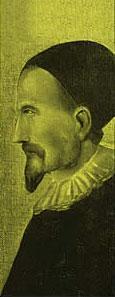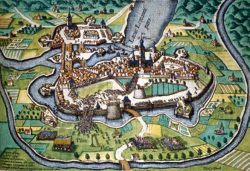Antoine de Chandieu (1534-1591)
Antoine de Chandieu was a theologian, a man of letters, a poet and also a man of action; he played an important role at the beginnings of the Reform Movement in France.
He was a pastor in the Church of Paris
Antoine de la Roche Chandieu, a nobleman from Burgundy, belonged to one of the oldest families in the Dauphiné.
He was converted early on to the Reform Movement and in 1557 was appointed pastor to the Church of Paris in order to help Pastor Jean Le Maçon, who was better known as Jean de la Rivière.
He stayed in Paris from 1557 to 1563; during this period he took an active part in the establishing of the first national synod (1559).
He was entrusted with missions in several other towns; in Orléans in order to organize their new protestant community, in Poitiers and also in Chartres to start up their first Church.
He was the moderator at the third national synod in Orléans.
In 1557, he probably wrote the confession of faith which the Church of Paris presented to Henry II.
From the time of the Edict of Amboise (1560) onwards and especially during the first religious war (1562), the situation became increasingly difficult and restrictive for the Protestants; they were not even allowed to have any pastors. So Chandieu left Paris for his estate Chandieu in the Dauphiné; sometimes he went to Pole in the Beaujolais or else to Lyons, where he was temporarily appointed pastor in 1565.
He led an eventful life
In 1568 he took refuge in Geneva because his estate had been sequestrated and he had to “flee from the obstacles and threats of the ungodly”.
The treaty of Saint-Germain signed in August 1570 brought his exile to an end and he left Lausanne to become a delegate for Lyons and Burgundy.
In 1572, after the Saint Barthelemy massacre, he once again went into exile: from 1572 to 1583 he was in Lausanne, in the canton of Vaud and worked as a teacher. When there was an outbreak of the plague in 1579, he decided to settle in Aubonne, where he stayed until 1583.
In 1583 he returned from exile once more and lived in his château in Pole, Burgundy.
In 1587 Chandieu was appointed minister by Henry of Navarre at the battle of Coutras and in 1588 he was sent to preside over the protestant princes in Germany and in the Swiss cantons which had converted to Protestantism.
When he returned to Geneva he was asked by the pastors there to preach every Sunday evening.
This is where he died in 1591.
Chandieu’s literary works
Chandieu was a prolific writer of theology, history and even poetry.
Thanks to the rapid development of printing there was a wide circulation of texts; another consequence was the great number of tracts which were distributed in France during these troubled times of the wars of religion.
With great talent, Ronsard defended both the catholic faith and the King’s religious policy in A discourse on the evils of this present time, (Discours des misères de ce temps); this work led to violent controversy and many pamphlets were written in reaction to it. Chandieu responded by attacking Ronsard in A reply to the calamitous assertions which are claimed by Pierre Ronsard in his Discourses (1563), (Response aux calomnies contenues aux Discours de Pierre de Ronsard (1563).
Another conflict arose in the 1560’s within the newly established protestant Church over the internal discipline agreed upon at the first synod; its title was Treatise on church discipline and ecclesiastical policy (Le traité de la discipline et police ecclésiastique) by Jean Morély; in this work, he attacked the presbyterial-synodal system which had been established in the reformed Church in 1559; according to him, the Church members themselves should hold absolute power.
Chandieu reacted by confirming the legitimacy of the Discipline in his treatise: Confirmation of the ecclesiastical discipline observed by the reformed Churches in the realm of France (1566) (Confirmation de la discipline ecclésiastique observée es églises réformées du royaume de France (1566).
The national synod of Orléans held in April 1572 heavily criticized Morély’s book because it was not in accordance with Church policy.
Under the pseudonym of A. Zamariel, Chandieu published his History of the persecutions and martyrs of the Church of Paris from 1557 until the beginning of the reign of Charles IX (Histoire des persécutions et martyrs de l’Église de Paris depuis l’an 1557 jusqu’au temps du roi Charles IX), in Lyons in 1563. The basic aim of this work was to encourage the other French Protestants of his time to trust in God, to resist against despair and the temptation of religious dissimulation.
Above all, Chandieu was perhaps considered to be a poet, as it was in verse that he excelled in expressing his faith, his own suffering and that of the protestant Churches of France.
Memory, immortal memory,
Feebly do I call on you
And into your hands do I commit
So very many acts of cruelty
Against your Church
So they may never be forgotten.
Tear out of forgetful silence
The violence that knows no pity
Which is so scandalous; in hot pursuit
It chases away, kills and destroys
My family, my people, my Church
And I must suffer a living death.
O powerful and fearful God
Always the same, never changing
Look down, I pray, on my captivity:
Change my weakness into strength
My fear into joy and consolation
My slavery into freedom.
(extract taken from Christian and moral poems) (Poèmes chrétiens et moraux,(s.l., s.d., éd. De Tournes)
Chandieu’s works
- A short preface to the faithful scattered abroad in the French realm (Advertissement aux fidèles espars parmi le royaume de France, (s.l., s.n., 1561)
- An apology for or defence of good Christians against the enemies of the Christian Church (Apologie ou defence des bons chrestiens contre les ennemis de l’Eglise chrestienne (s.l., s.n., 1563)
- History of the persecutions and martyrs of the Church of Paris from 1557 until the beginning of the reign of Charles IX (Histoire des persecutions et martyrs de l’Eglise de Paris depuis l’an 1557 jusqu’au temps du roi Charles IX, Lyon, 1553).
- A reply to the calomnies claimed in the discourse and the following discourses on the evils of this present time by Mr. Pierre de Ronsard (Response aux calomnies contenues au discours et suite du discours sur les Misères de ce temps faits par Messire P. de Ronsard) by A. Zamariel, Orléans, 1563.
- Meditations on Psalm XXXII, translated from Latin into French, to which have been added 50 octonaires on the vanity of this world (Méditations sur le psalme XXXII, trad. du latin en Français ont été adoustez 50 octonaires sur la vanité du monde) by A. Zamariel, Geneva, J.Laimaire, 1583.
- Octonaires on the vanity and inconstancy of this world (Octonaires sur la vanité et inconstance du monde) edited by Fr. Bonali-Fiquet, Geneva, 1979.
- Christian and moral poems (Poèmes chrétiens et moraux) s.l., s.d., ed. de Tournes
Bibliography
- Books
- BARKER S.K., Protestantisme, Poetry and Protest : the vernaculaire writings of Antoine de Chandieu (1534-1591), Ashgate, 2009
- BERNUS Auguste, Le ministre Antoine de Chandieu d’après son journal autographe inédit, Imprimeries réunies, Paris, 1889
- CHARBONNIER F., Pamphlets protestants contre Ronsard (1560-1577), Paris, 1923
Associated notes
-

Jeanne d'Albret (1528-1572)
She became a convert of Protestantism and made it the official religion in her kingdom of Navarre. -
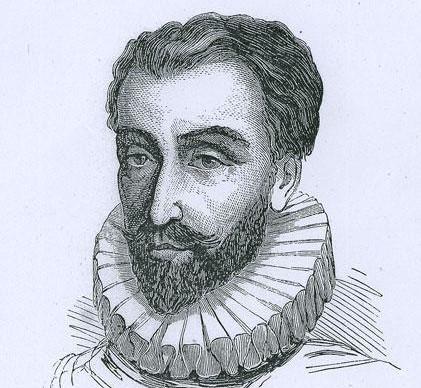
François de La Noue (1531-1591)
François de La Noue, known as « Iron arm », was a Huguenot gentleman, a well-known military chief as well as a historian of the wars of religion. -
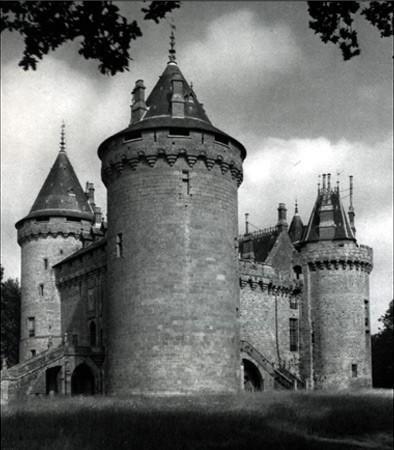
Claude du Chastel (1554-1587)
A rich Huguenot heiress coveted by a Catholic nobleman, or Romeo and Juliet during the wars of religion… -
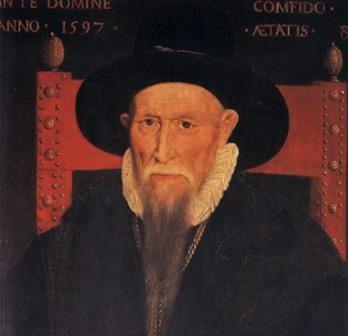
Théodore de Bèze (1519-1605)
Theodore Beza was one of the most prominent figures in the Reform movement. He supported Calvin and succeeded him as moderator, i.e. president, of the Company of pastors in Geneva.... -
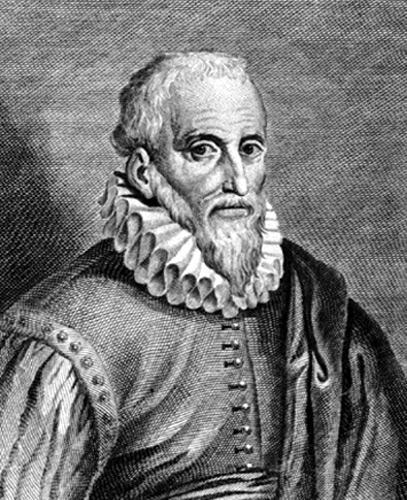
Ambroise Paré (1509-1590)
Initially an army surgeon, he made discoveries in such fields as anatomy, physiology and therapeutics.

